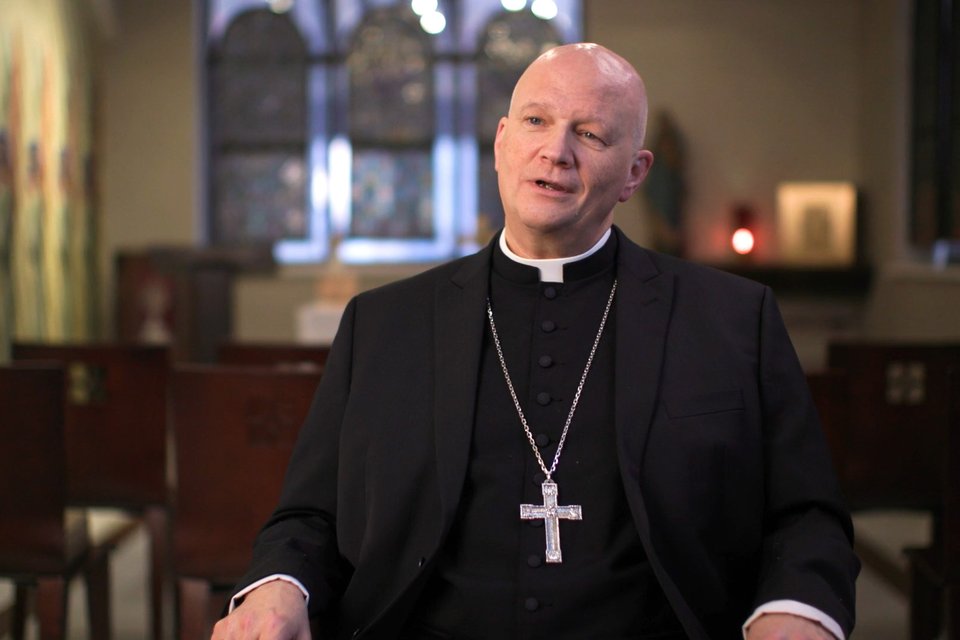Over the past decade, the abundant fruits of the Archdiocese of Detroit's missionary transformation are evident everywhere
DETROIT — For 16 years, Archbishop Allen H. Vigneron has been tasked with teaching, sanctifying and governing the faithful of the Archdiocese of Detroit.
From the moment he assumed his cathedra at the Cathedral of the Most Blessed Sacrament on Jan. 28, 2009, until the announcement of his retirement on Feb. 11, 2025, the Anchorville native has guided the transformation of his home archdiocese into a more outward-focused, evangelistic Church.
Fittingly enough, if one were to calculate the halfway point of Archbishop Vigneron’s episcopacy — Feb. 4, 2017 — they would note the date falls between the two key pillars of the archbishop’s time in Detroit: Synod 16 and his subsequent pastoral letter, “Unleash the Gospel.”
The archdiocesan-wide gathering from Nov. 18-20, 2016, was the culmination of a Year of Prayer for New Pentecost in the Archdiocese of Detroit, and the inspiration behind “Unleash the Gospel,” released on the Vigil of Pentecost, June 3, 2017, as a roadmap for how to turn the Archdiocese of Detroit into a “band of joyful missionary disciples.”
Building the domestic church
“Unleash the Gospel” called on every parish, school and ministry within the Archdiocese of Detroit to undergo a shift in mindset from “maintenance to mission.”
For years, the Church in southeast Michigan relied on institutions and cultural norms to preach the Gospel to generations of Catholics, but now in a new apostolic age, it was time for the Church to re-examine its structures, practices and mindset to evangelize an increasingly secular world, Archbishop Vigneron wrote in his pastoral letter.
“I would say one of the great areas where the Church is focused since Synod 16 and ‘Unleash the Gospel’ is on our good habits and bad habits,” Fr. Mario Amore, director of the Department of Evangelization and Missionary Discipleship in the Archdiocese of Detroit, told Detroit Catholic. “It called to mind the ways we need to get out of the status quo mentality and offer new ways to be focused on accompanying others in their own life of discipleship, offering more of those shallow-entry points, things that just meet people in the community and show them what the Gospel is.”
“Unleash the Gospel” has challenged parishes to think differently about engaging the world, Fr. Amore said, abandoning the assumption that people are going to walk into the Church, but rather, that the Church must go out to evangelize the world.

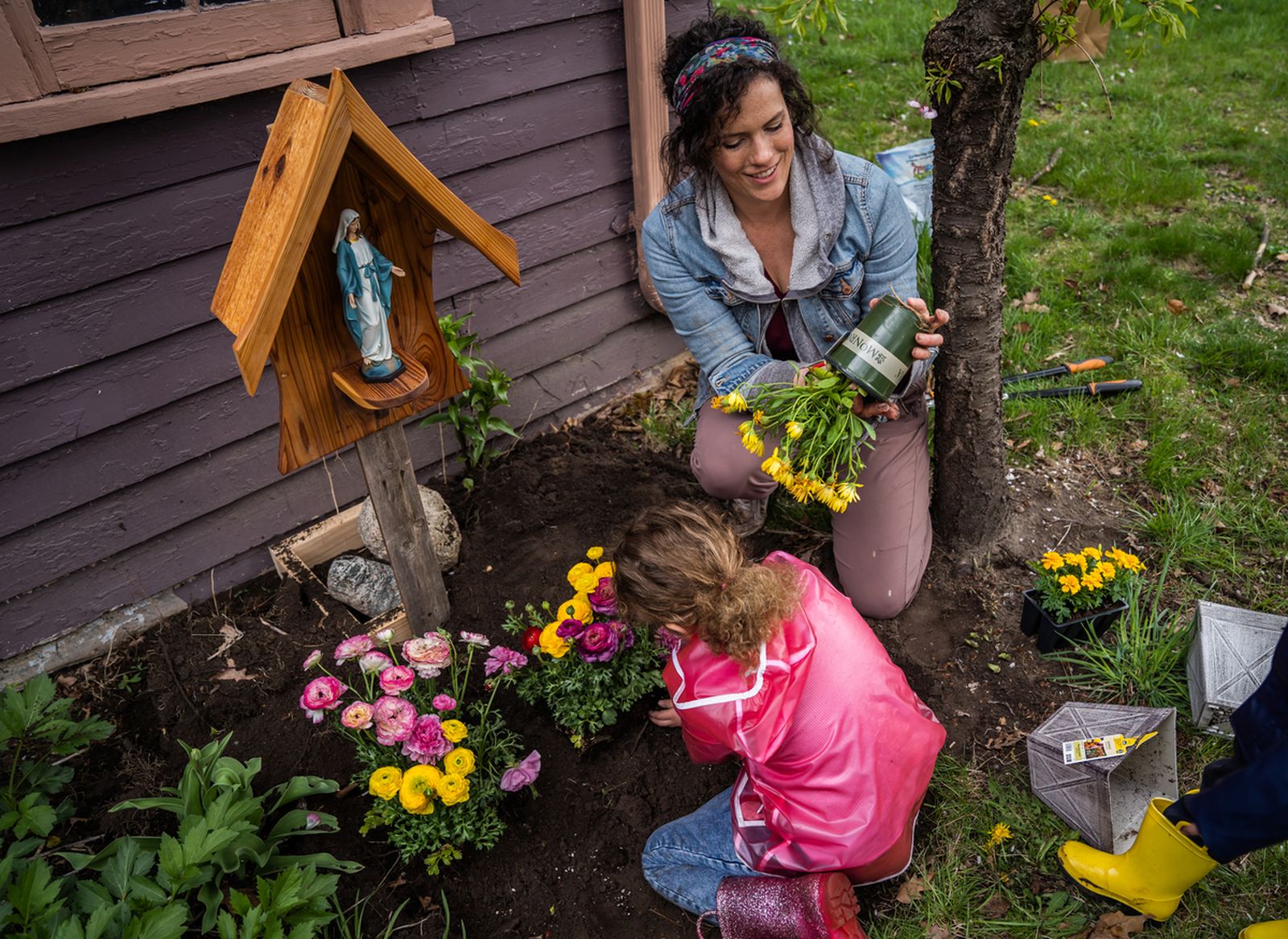
The Office of Evangelization and Missionary Discipleship has worked with parishes to provide ministries and workshops surrounding marriage preparation and natural family planning, healing after divorce with “Life Giving Wounds,” families with members experiencing same-sex attraction and gender dysphoria, and even those suffering the pain of infant and pregnancy loss.
The department created an office dedicated to family evangelization and ways families could build the domestic church, which was a direct response to the action steps prescribed in “Unleash the Gospel,” explained Nicole Joyce, deputy director of the Department of Evangelization and Missionary Discipleship.
One of the more robust initiatives since Synod 16 and “Unleash the Gospel” has been the call to reclaim Sundays, the Lord’s day, as a day of prayer and time with the family.
Joyce explained the success of the archdiocese's "52 Sundays" initiative, introduced in 2019, has even spilled across the borders of the archdiocese and inspired online resources to walk with families in need.
“We have seen other dioceses using '52 Sundays' to encourage growth in the domestic church as part of the universal church,” Joyce said. “Another resource, CompassforParents.org, which was created in response to the archbishop’s call for us to better support families in crisis, provides resources and help for parents in dealing with difficult, real-life situations like bullying, addiction, internet safety, and other attacks on the domestic church.”
Strengthening parishes and schools
Perhaps the biggest structural change in the Archdiocese of Detroit since Synod 16 and “Unleash the Gospel” has been the introduction of “Families of Parishes.”
While parishes in the archdiocese retain their individual, canonical identity, the new groupings — introduced in 2020 during the COVID-19 pandemic — allow Catholic communities throughout southeast Michigan to better share resources and personnel in order to more effectively focus on ministry and mission.
The transformation comes as the archdiocese — like many across the country — experiences a shrinking and aging presbyterate, with more and more tasks being assigned to priests that take them away from direct ministry.
Msgr. Charles Kosanke, rector of the Basilica of Ste. Anne and Most Holy Trinity Parish in Detroit and moderator of the archdiocese's Central Region, said Families of Parishes are a way to help priests reclaim time spent on administrative tasks to devote more time to direct evangelization and mission.
“One of Archbishop Vigneron's major goals for Families of Parishes is the flourishing and health of priests,” said Msgr. Kosanke, who in February was named the interim director of the archdiocese's new Department of Parish Renewal. “The archbishop recognized every year we have fewer priests, which means more work. Families of Parishes is a way for priests to not only work together, but to support one another. It hasn’t been perfect by any means, but it’s a way to help priests to avoid burnout, to be healthy physically, emotionally and spiritually.”
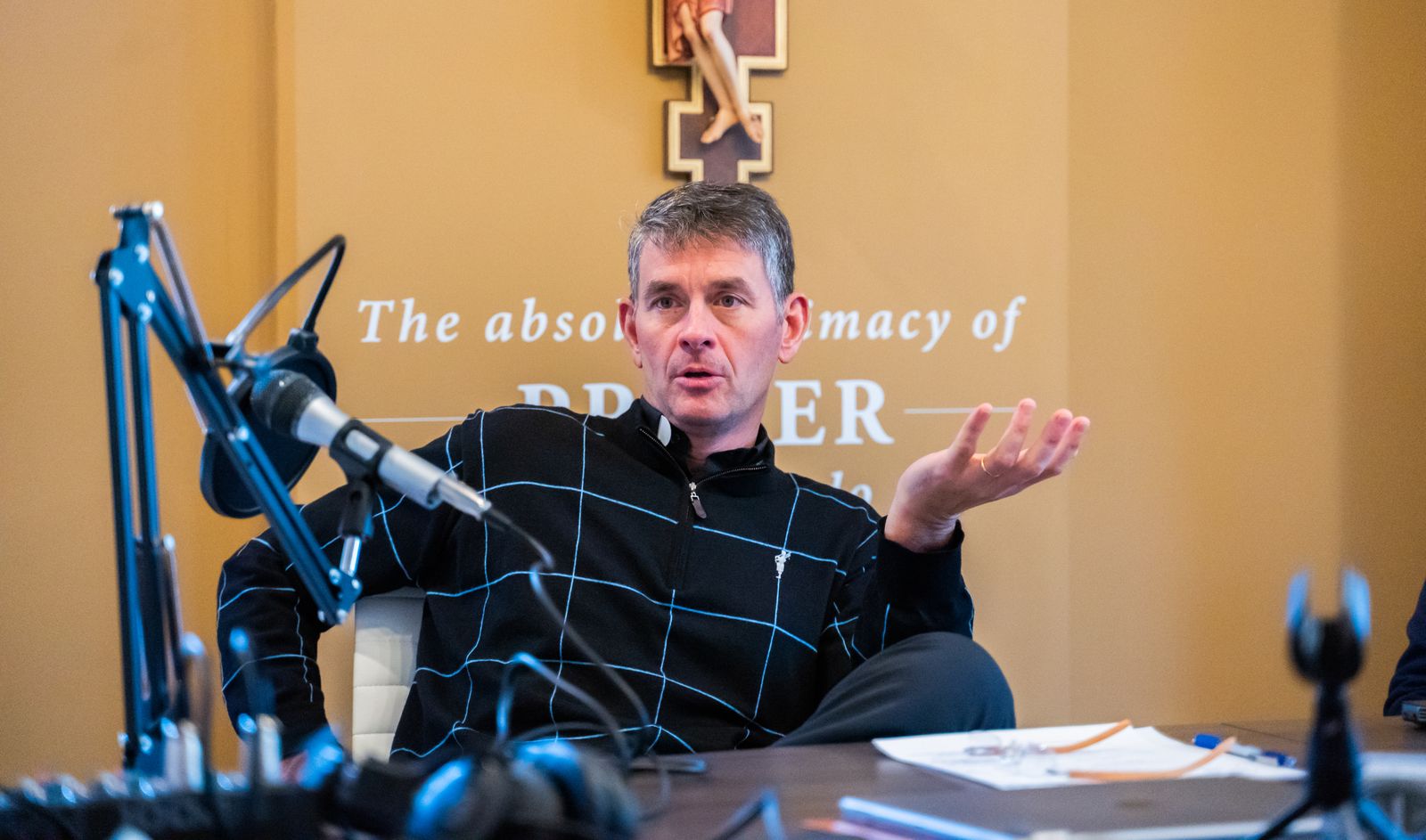
In the buildup to Synod 16, the Archdiocese of Detroit hosted the Amazing Parish Conference at the Renaissance Center in Detroit to analyze how parishes can become focal points of evangelization, and missions such as the Detroit-based ACTS XXIX have focused on what makes for healthy priests, healthy parishes and healthy ministries that Catholics will find attractive, supportive and welcoming.
The transformation has spilled over into Catholic schools, as well.
Parochial schools have a long and proud history in the Archdiocese of Detroit, but the future of Catholic education in southeast Michigan depends on Catholic schools becoming "the responsibility of all parishes and all Christ’s faithful," Archbishop Vigneron wrote in "Unleash the Gospel," ensuring schools are not just academically excellent, but makers of disciples and incubators for the saints of tomorrow.
Eric Haley, superintendent of Catholic schools for the Archdiocese of Detroit, said the archbishop has consistently emphasized that the core purpose of Catholic schools is to evangelize.
“We have definitely taken steps to make our Catholic identity a priority in our schools; it can’t just be the frosting on the top, as the archbishop recently talked about during our Catholic Schools Week Mass (on Jan. 30),” Haley said. “Since the synod, across our archdiocese we have been more intentional about the mission behind our schools and our role in creating lifelong disciples.”
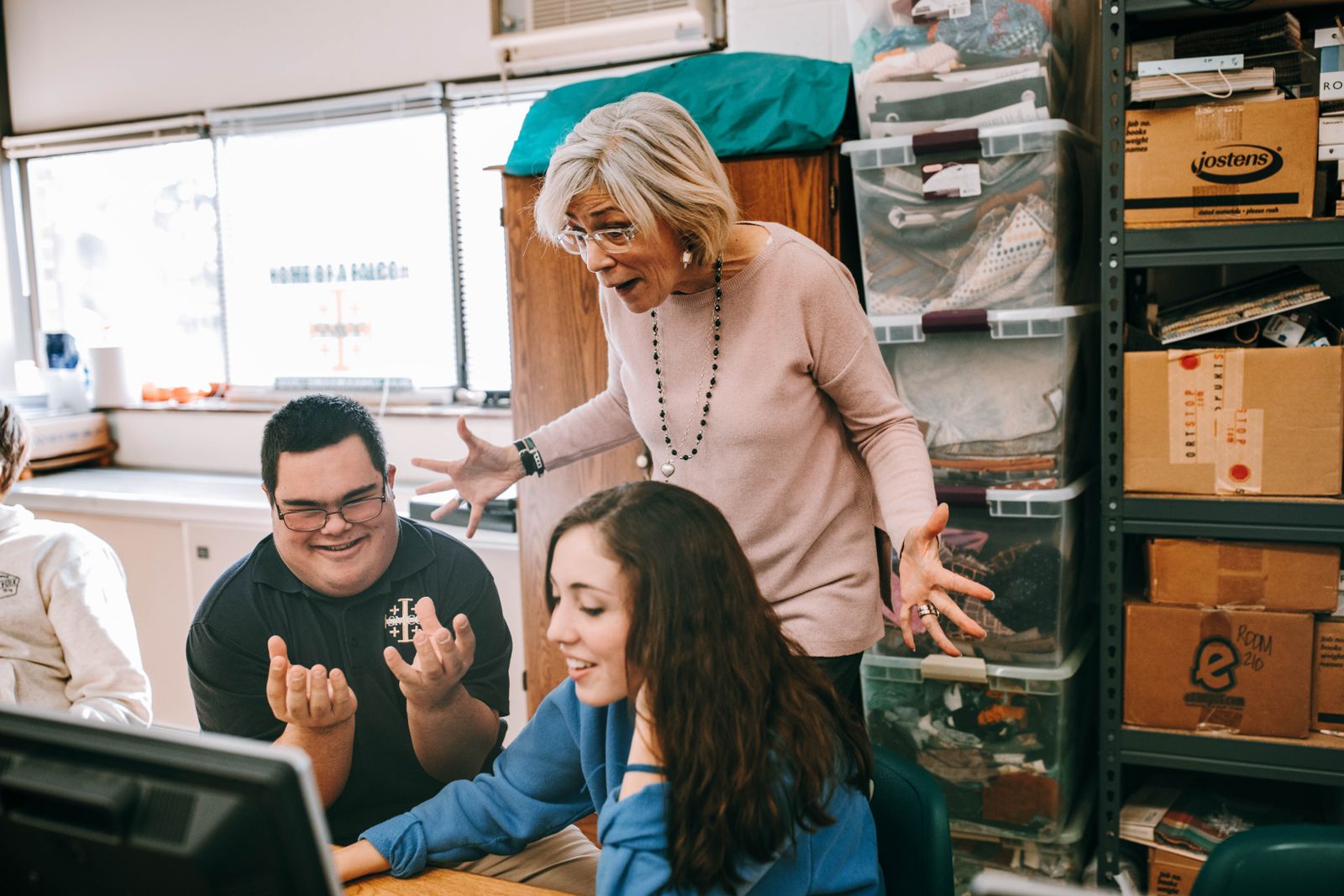
Entities such as the Catholic Schools Council and efforts to establish various school-based scholarships, grants and endowments — including greater support for special education inclusion — have allowed schools to create and execute plans to work toward a thriving and financially stable future.
Haley said the Department of Catholic Schools has made progress on Archbishop Vigneron’s vision for Catholic education, and the work isn't done. It's been a blessing, Haley added, to have an archbishop who sees clearly that the health and vitality of Catholic schools is an integral part of the Church's renewal.
“Archbishop Vigneron has been a great supporter of Catholic schools in his time as archbishop of Detroit,” Haley said. “He’s somebody who views schools as important to the mission of the greater Church, and that’s something he hasn't been afraid to say over and over again. I think people will remember his love for our schools, and his support as a champion for Catholic education."
A culture of charity that transforms lives
Since the early days of the Church, the Christian community has been one centered in charity.
The Acts of the Apostles chronicles how the early disciples of Christ set aside their goods for the betterment of the poor, and through the ages, the Church has been a refuge for the desperate and destitute.
But beyond acts of mercy, Archbishop Vigneron made clear that Christian charity is intertwined with evangelization, and how the material goods given to the poor fail in comparison to the love and acknowledgment that each person is a beloved son or daughter of God, said Paul Propson, chief executive officer of Catholic Charities of Southeast Michigan, the charitable service arm of the Archdiocese of Detroit.
“The archbishop really gives a focus to the charitable works of the Church in 'Unleash the Gospel,' and he spoke on this at our most recent board meeting,” Propson said. “He said Catholics around the world have developed these amazing programs — and we must continue these programs — but there’s a tendency for charitable work to become separated from our primary calling to spread the Gospel.”
As archbishop of Detroit, Archbishop Vigneron serves as chairman of the board of directors of Catholic Charities of Southeast Michigan, which in 2011 combined into a single, united agency from five separate county-based social service entities.
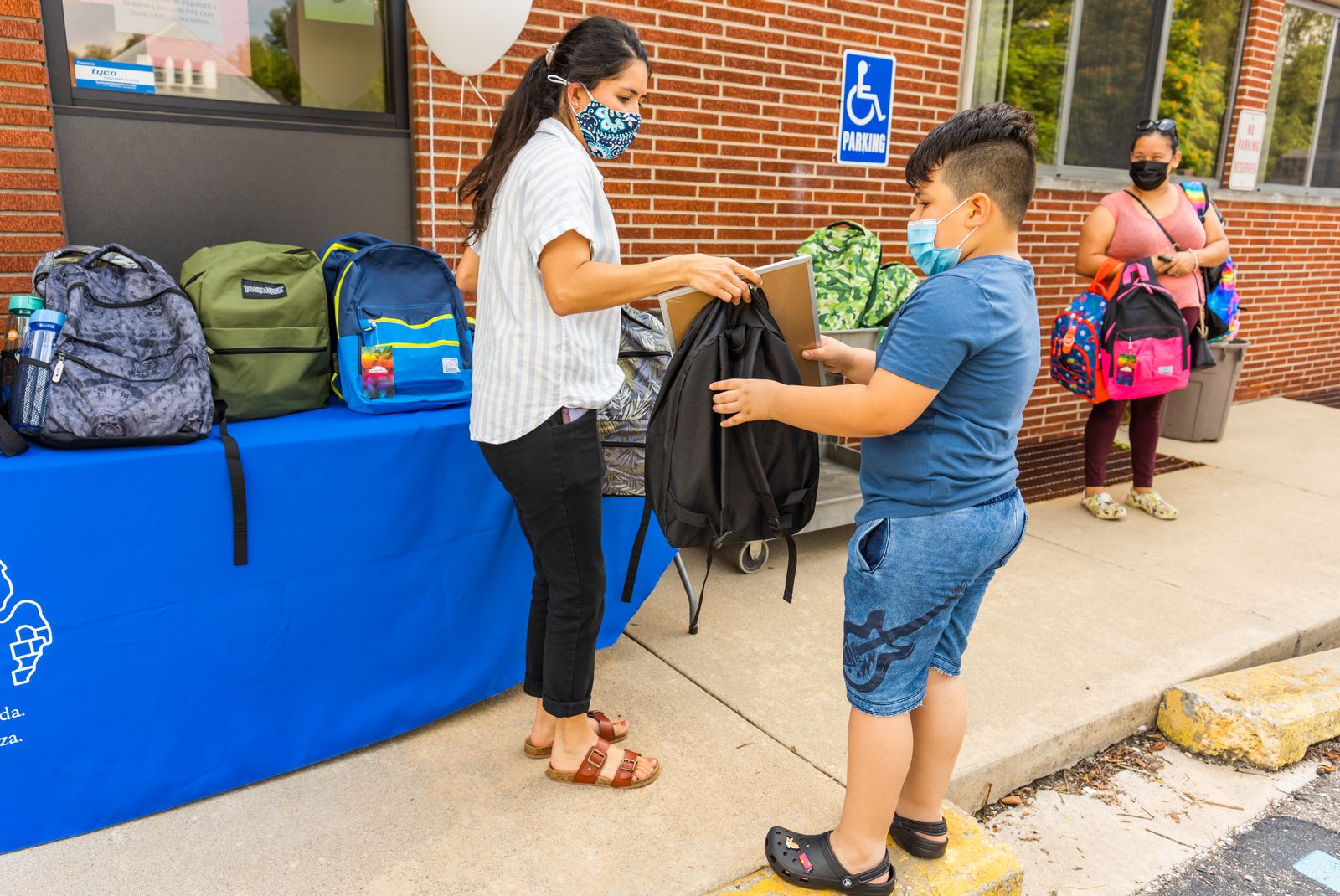
Since that time, Catholic Charities of Southeast Michigan has expanded services throughout the Archdiocese of Detroit, including the Center for the Works of Mercy on Woodward Avenue in Detroit, La Casa Amiga in Pontiac and the St. Joseph Center of Hope in Monroe.
Archbishop Vigneron made frequent visits to the All Saints Soup Kitchen Food Pantry — now located on Wagner Street in Detroit — and supported efforts such as Mary’s Mantle, a Catholic home for expectant mothers in Southfield, and "Walking with Moms in Need," an initiative to create a network of pro-life resources for women and families.
“Unleash the Gospel” spoke of charity in the form of “radical hospitality” and reaching out to the people in a manner in which the love of Jesus Christ is shown through word and action in ministries across the archdiocese.
Deo Gratias Ministries at Seven Mile and Redmond in Detroit formed in 2018 as an organization answering the call of “Unleash the Gospel” to go out and transform a neighborhood through such radical hospitality.
The ministry, located at St. Jude Parish in Detroit, provides a variety of services to the community, including a food pantry, access to social workers, tutoring and GED programs and an art program to encourage human development.
The ministry also operates a café in order to create a space for socialization and community, explained Sr. Felicity Marie Madigan, CSSF, co-director of Deo Gratias Ministries, because "Unleash the Gospel" emphasizes that Christian charity is rooted in seeing Christ in every person.
“Our work is rooted in evangelization through the radical hospitality that Archbishop Vigneron calls for when he says we need to be missionary disciples,” Sr. Madigan said. “Our café fosters a sense of community when guests come into our building. People are greeted with smiles from us, and we acknowledge them by name, showing them compassion and getting to know them as regular human beings. Evangelization — the authentic evangelization the archbishop is calling for — happens when we develop genuine friendships with those we are serving. When we are meeting their needs, and they ask, 'Why are we doing this? Why we are joyful?' we can say, 'Because we know Jesus.'”
Spreading the Gospel everywhere to everyone
If "Unleash the Gospel" is about one thing, it's about evangelization — proclaiming the death, resurrection and ascension of Jesus Christ, and how his victory over the grave has won eternal life for those who believe in him
Since Archbishop Vigneron asked the Archdiocese of Detroit to pray for a new Pentecost in 2015, this has been the primary focus of the local Church.
At its core, the archbishop has said, evangelization is not about a single program or initiative, but about "person-to-person engagement," a movement that permeates the culture and changes those who engage in it.
Various groups and missions have come and gone in the Archdiocese of Detroit since Synod 16 — from "Come, Encounter Christ" events at parishes featuring dynamic preaching, music and Eucharistic adoration, to more recent programming such as "I AM HERE," an effort designed to promote personal Eucharistic devotion in the buildup to the 2024 National Eucharistic Congress.
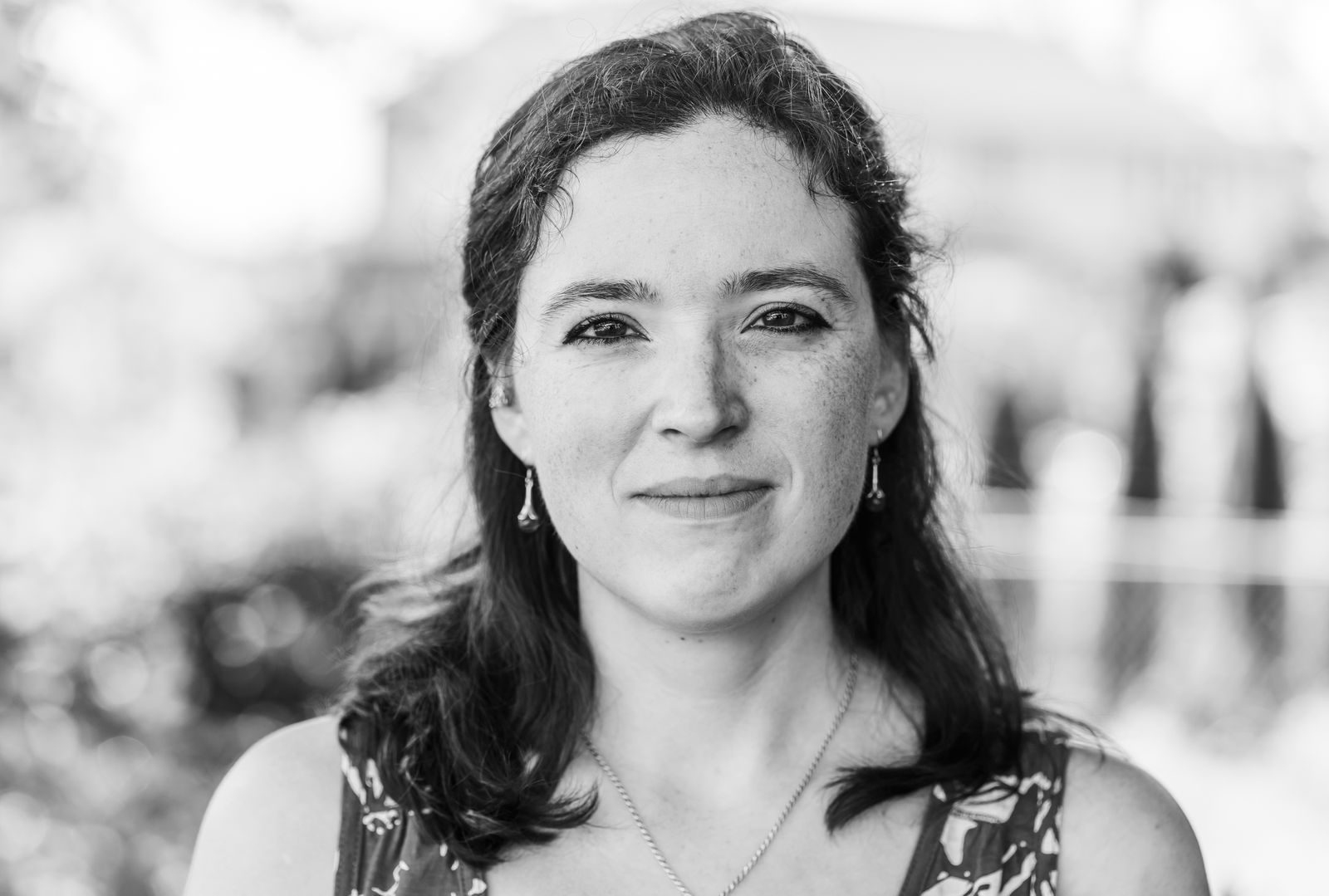
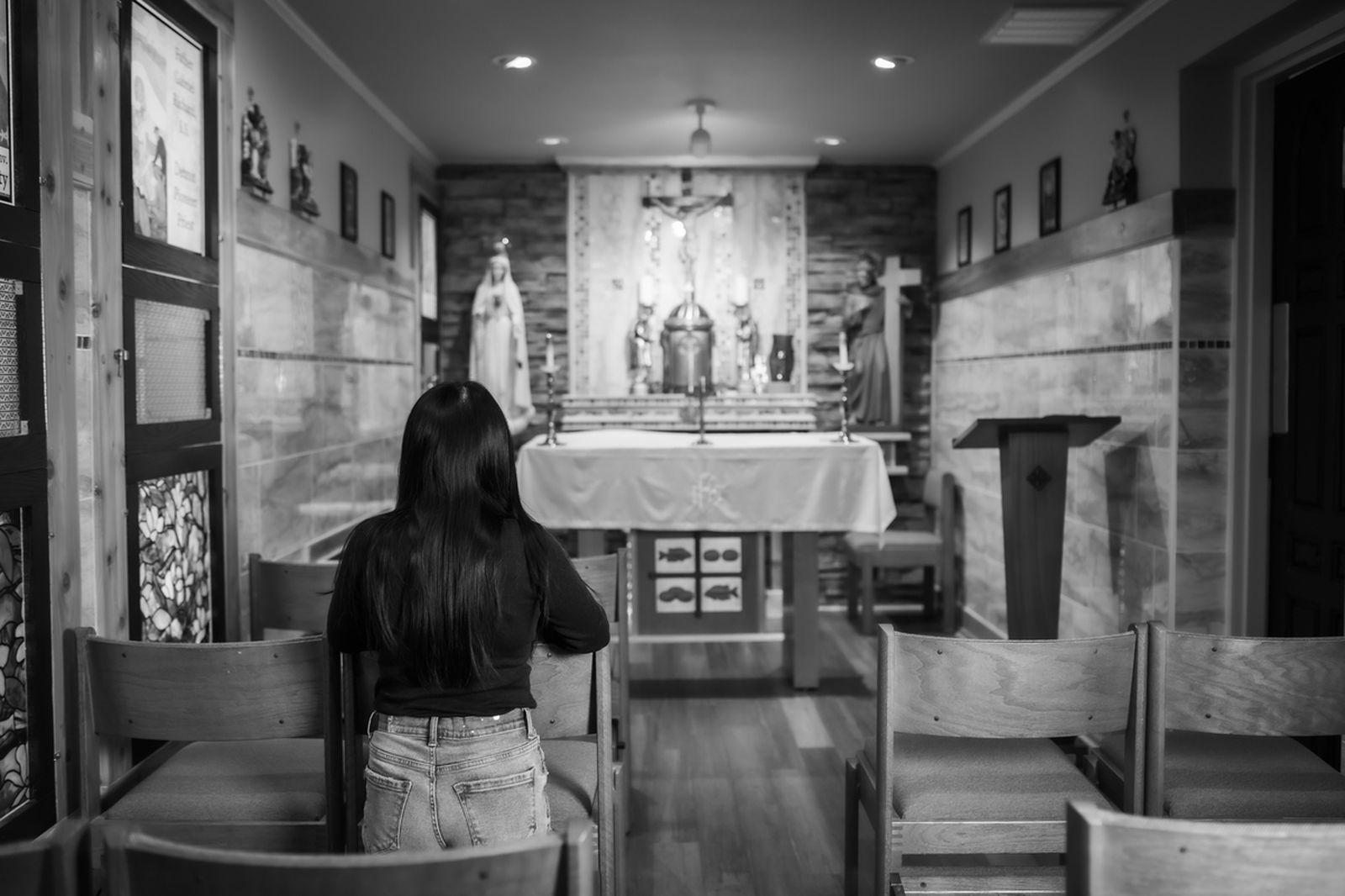
But thesis of “Unleash the Gospel” is that the Church can’t just wait for people to walk inside. Rather, the people of God must preach the Gospel wherever they are.
Apostolates such as Young Catholic Professionals, Detroit Catholic Campus Ministry and UTG at Work have sprung up to equip the faithful to be confident in carrying out their apostolic mission to preach Christ, no matter their station in life.
Deacon Mike Houghton, executive director of UTG at Work, said the apostolate helps the lay faithful become better witnesses to Christ in the workplace.
“If we can bring that hope back into the workplace, sharing who we are as people of God, people of Our Lady, it can evangelize those who are around us who will want to know why we have so much hope,” Deacon Houghton said. “We want to help them to know the Lord Jesus Christ, and that he has salvation for you and me. When we do that, people can’t help but be attracted to our hope, and they will want that for themselves.”
It's fitting that “Unleash the Gospel” has ignited the spark of evangelization in Detroit, the nation’s largest minority-majority city.
The pastoral letter speaks about how the Gospel elevates all cultures, and how in Detroit in particular, diverse voices, especially Hispanic and Black Catholic voices, are needed in order to bring about renewal in the Church.
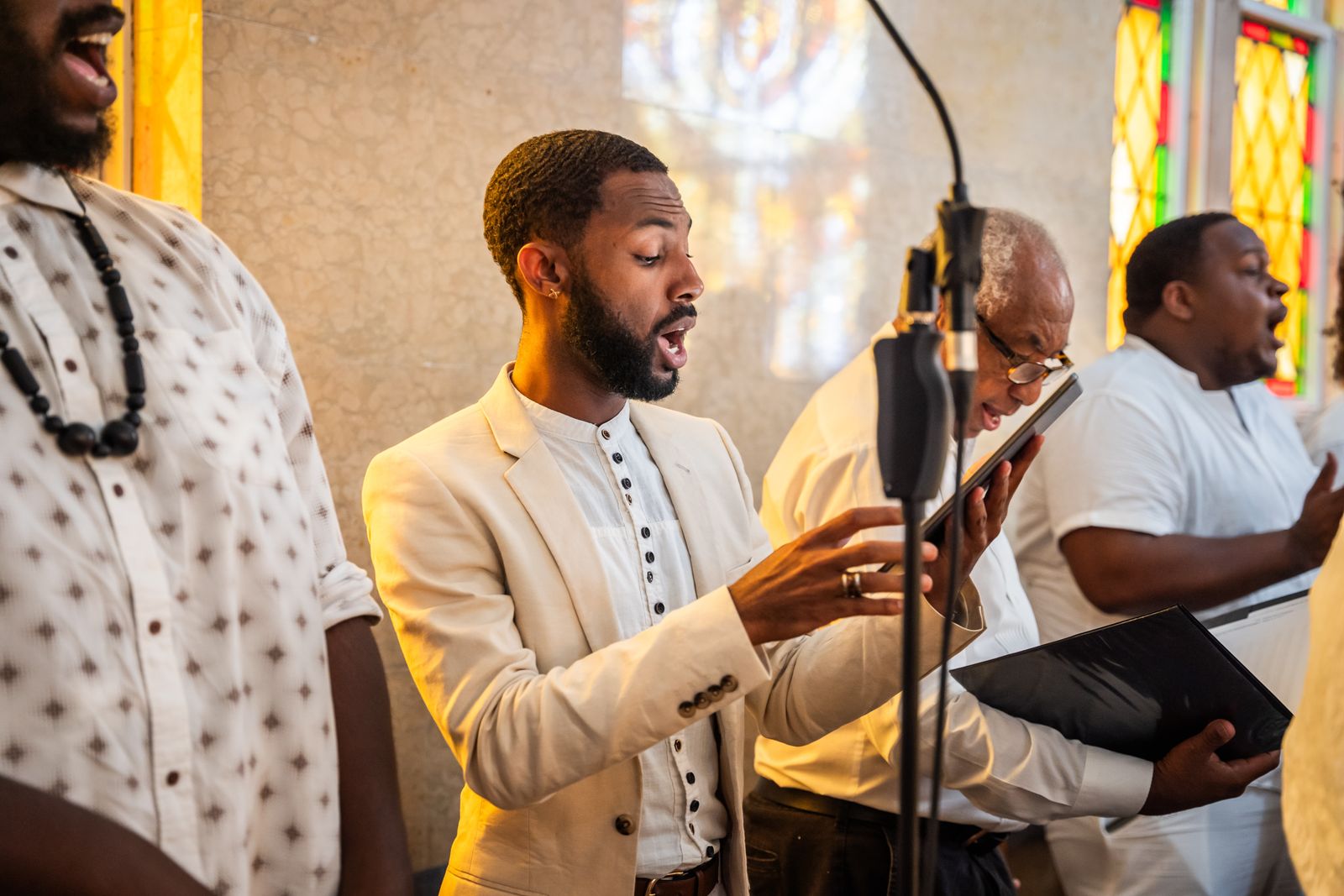
Vickie Figueroa, associate director for cultural ministries and coordinator of Black Catholic ministry in the Archdiocese of Detroit, credits "Unleash the Gospel" with calling for Sacred Heart Major Seminary in Detroit to develop programs and steps to integrate African-American culture in the seminary and produce culturally competent priests and seminarians.
Figueora said recent initiatives such as the annual Jazz Mass and "Songs of Freedom" Gospel choir concert elevate Black Catholic voices and show people of all ethnicities that the Catholic Church is truly universal.
“I think Synod 16 has opened the door to people being more open to cultures outside of their own, recognizing that God made all cultures and put us in different parts of the world,” Figueroa said. “We’ve come together as the body of Christ, and even though we’re speaking different languages like they did on the day of Pentecost, we can still understand each other, because we’re all speaking of the one true God.”
Bringing more laborers to the vineyard
“Unleash the Gospel” stresses that everyone has a vocation to evangelize, but in the Archdiocese of Detroit, specific movements have been undertaken to foster a culture of discernment and religious life in southeast Michigan.
Since Synod 16, the Archdiocese of Detroit has undergone a Year of Prayer for Priestly Vocations, revamped its efforts related to priestly discernment — including a new content brand and podcast, "Men of the Hearts" — and has worked to make vocations more approachable to those who might have calling.
The pastoral letter called for bold new ways to share stories of religious life, calling on all Catholics — ordained or not — to foster vocations to the priesthood, diaconate, consecrated life and marriage.
Fr. Craig Giera, director of priestly vocations for the Archdiocese of Detroit, said some of the more powerful, and successful, discernment weekends at Sacred Heart Major Seminary happen when Archbishop Vigneron has taken the time to share his own discernment story.

“He’s really personable in anything that he does with the seminarians, or even the guys who come for a discernment weekend,” Fr. Giera said. “Almost every discernment weekend he’ll carve out time to talk to all the men — it doesn’t matter if it's three men or 10 — he’d come and talk about his own discernment, and every time, it’s so powerful and the men are moved when he joins us for evening prayer."
Over the years, Archbishop Vigneron has invited various religious communities to come to the Archdiocese of Detroit to minister at schools and parishes, such as the Society of Our Lady of the Most Holy Trinity, which ministers at Holy Redeemer Parish and School in southwest Detroit, and the Dominican Sisters of Mary, Mother of the Eucharist, who serve at St. Isaac Jogues School in St. Clair Shores.
Other religious communities introduced to the Archdiocese of Detroit during Archbishop Vigneron’s episcopacy include the Institute of Christ the King Sovereign Priest, who were invited to take charge of what is now St. Joseph Shrine, a personal parish that celebrates the traditional Latin Mass according to the 1962 Missal, and the Franciscan Friars of the Holy Spirit, who operate St. Mary of Redford Parish in Detroit while its men in formation study at Sacred Heart Major Seminary.


Bishops across the country continue to send their seminarians to Sacred Heart, which itself has been revitalized with the introduction of the groundbreaking Sacred Licentiate in Theology program in the new evangelization, which includes a full-time, four-year program with summer residency and online courses.
“The reason we changed (to begin offering an online format) is that more and more bishops had an interest in sending priests to the program, but they couldn’t afford to let their priests go for two years to study for a licentiate,” said Fr. Tim Laboe, dean of studies at Sacred Heart Major Seminary.
“Archbishop Vigneron is an academic at heart,” Fr. Laboe added. “It helped so much knowing the chief shepherd of the archdiocese spoke the language of higher education. He was always interested in excellence in education and knew Sacred Heart Major Seminary had a vital role to play in preparing people for the new evangelization."
Fr. Richard Cassidy, a professor of Sacred Scripture at Sacred Heart, added Archbishop Vigneron's "tremendous commitment to scholarship" has made Sacred Heart one of the finest seminaries in the country.
“As a result of his own doctrinal studies, he has been instrumental in setting forth a theologically coherent program for the Archdiocese of Detroit," Fr. Cassidy told Detroit Catholic. "He did that as the rector of the seminary and as an auxiliary bishop, but as the ordinary of the diocese, he sets forth the program. He knows Scripture quite well, he knows dogmatic theology quite well, and he knows pastoral theology quite well. When you put those three together, that’s theological coherence.”
Reaching out into the digital space
“Unleash the Gospel” stresses that the Church must go out to the public square in order to preach the Gospel. In the 21st century, that public square is increasingly becoming the digital space.
In the wake of Synod 16, which called for a renewal of the Archdiocese of Detroit's communications effort, the pastoral letter set forth a vision for "creative, responsive methods and tools across the board" in order to better suit a Church that was focused on mission.
A bold part of that strategy included a reimagining of the archdiocese's longtime news operations with the closure of The Michigan Catholic, the biweekly archdiocesan print newspaper founded in 1872, and the launch of its digital successor, Detroit Catholic, in 2018. The strategy, which called for daily local Catholic coverage ready to respond in a 24/7 news cycle, as well as multimedia content designed to engage modern media consumers, proved to be the right decision, with a significant increase in readership and engagement across the board.
In 2020, Detroit Catholic launched a Spanish-language sister publication, Detroit Catholic en Espanol, to serve the growing number of Hispanic Catholics in the Archdiocese of Detroit.
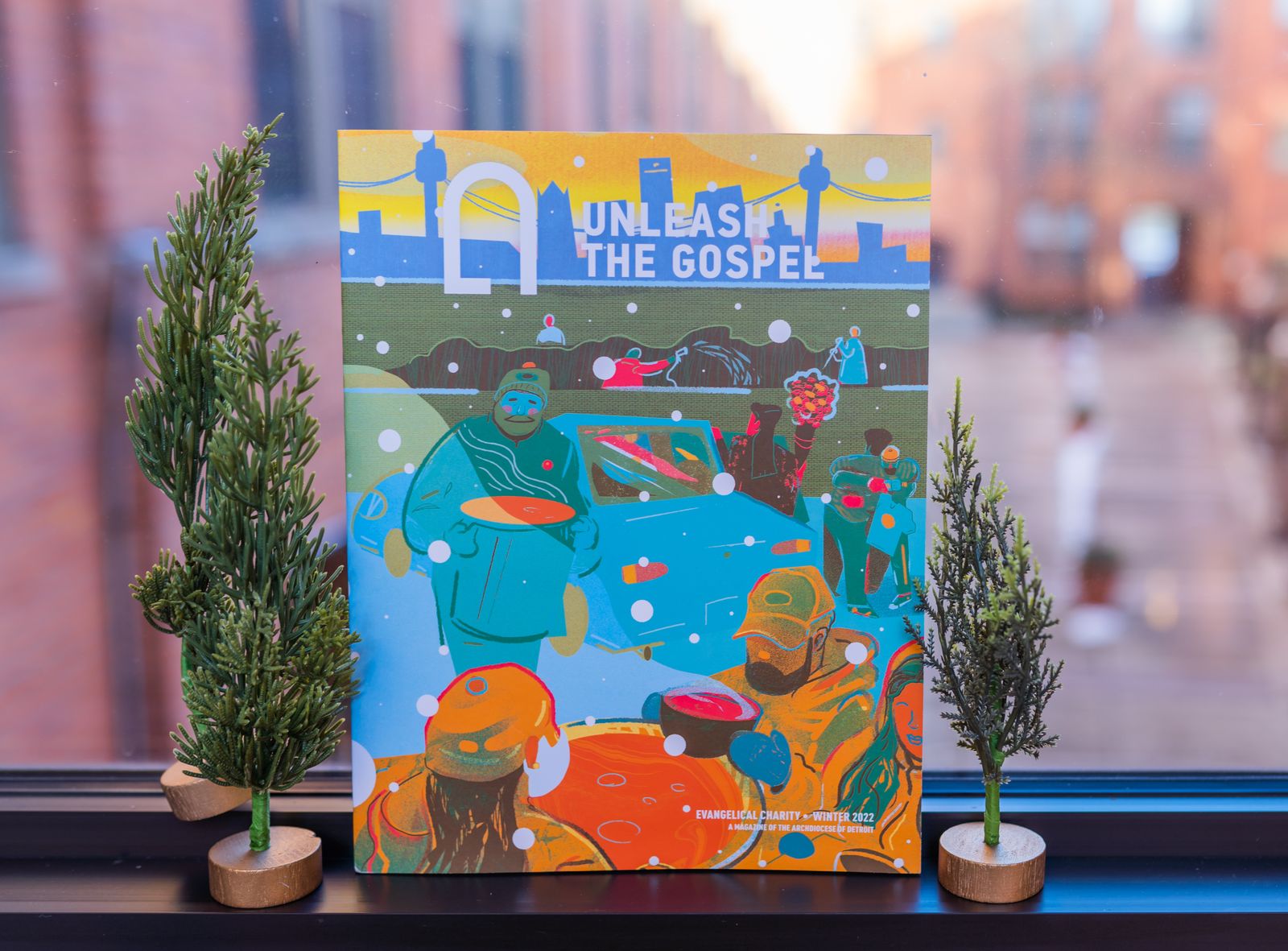
Other innovative communication efforts included the launch of the Unleash the Gospel lifestyle brand, which featured attractive and highly designed content centered around evangelization, culture and apologetics, including articles, video, audio and social media, as well as text and app-based content. From 2019 to 2022, these efforts included a magazine with original artwork, photography and interviews with local Catholics and influencers.
The archdiocese's Communications Department also launched a series of podcasts, including “Open Door Policy,” “Detroit Stories” and “Eyes on Jesus,” featuring Archbishop Vigneron, as the archdiocese sought new ways to reach the faithful beyond Sunday Mass.
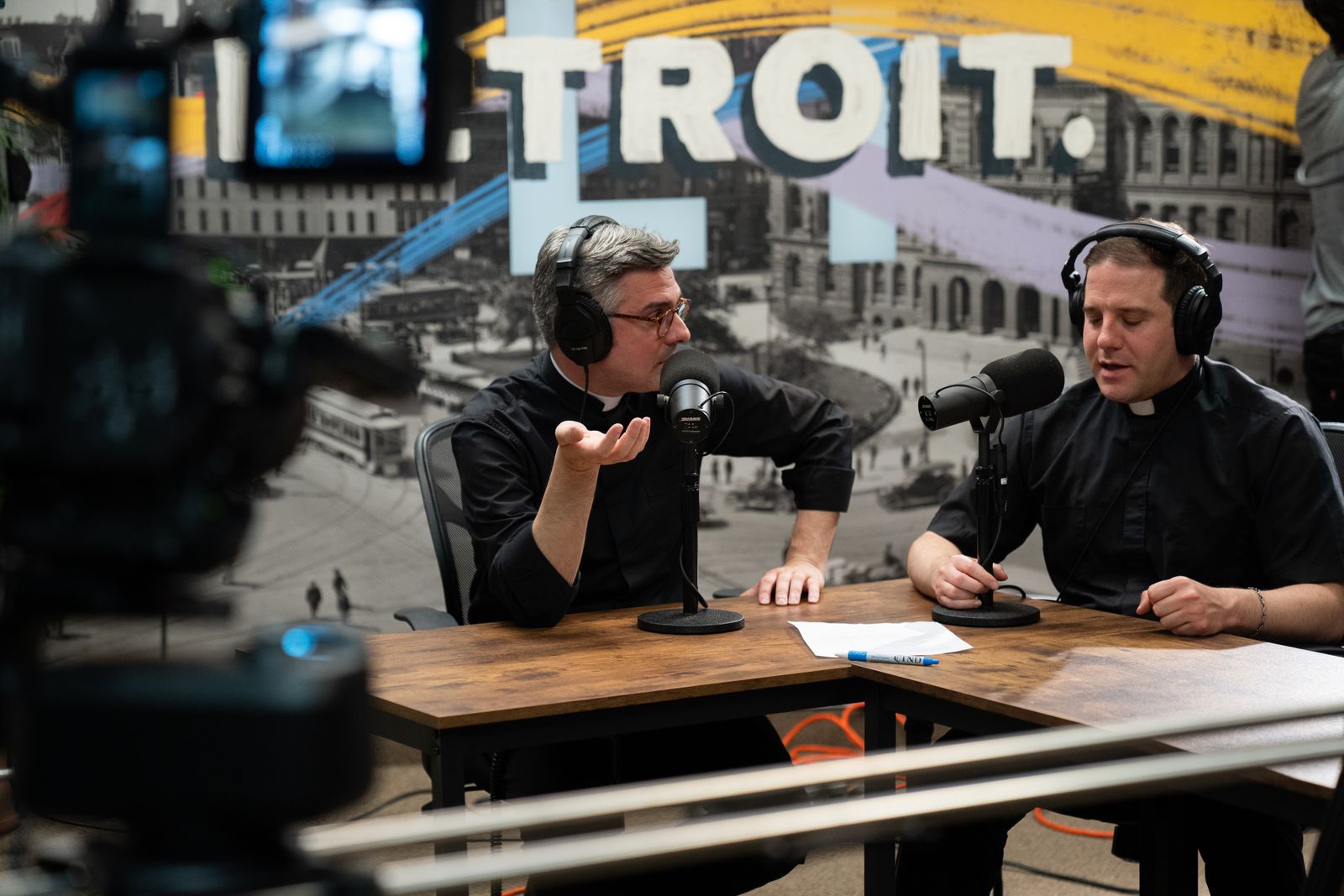
Through such efforts, hundreds of thousands of local Catholics and non-Catholics have experienced God's goodness and mercy in fresh new ways, said Michael Stechschulte, editor-in-chief of Detroit Catholic.
“Archbishop Vigneron’s foresight in building a 21st century model of digital communication has been nothing short of a resounding success, bringing the Gospel into the spaces where today’s conversations are taking place,” Stechschulte said. “We’ve seen real growth in engagement, readership and — most importantly — souls coming to know Christ through his Church because of these efforts.”
Other initiatives included an award-winning I AM HERE campaign, highlighting personal Eucharistic testimonials in the buildup to the 2024 National Eucharistic Congress, a restructuring of the Catholic Television Network of Detroit, as well as the addition of livestream broadcasts from the Cathedral of the Most Blessed Sacrament and engaging video courses and documentaries.
Signs of God’s grace spread in Detroit
Archbishop Vigneron has described the work of Synod 16 and "Unleash the Gospel" as the "work of a generation," a paradigm shift in the Archdiocese of Detroit whose true impact won’t be known for decades.
However, offshoots of that impact began to sprout not long after the synod.
The first, in fact, took place exactly one year after the synod's opening, when tens of thousands of Catholics gathered at Ford Field on Nov. 18, 2017, to celebrate the historic beatification of Blessed Solanus Casey.
Archbishop Vigneron often invoked Blessed Solanus in his homilies, “thanking God ahead of time” for the graces He would pour out on the city, and was always willing to support the Capuchin Franciscans at St. Bonaventure Monastery in whatever capacity he could, said Fr. David Pruess, OFM Cap., former director of the Solanus Casey Center and a classmate of Archbishop Vigneron's at Cardinal Mooney Latin School on the grounds of Sacred Heart Seminary.

“From the very beginning of his time in Detroit, Blessed Solanus really became part of Archbishop Vigneron’s prayer life,” Fr. Pruess said. “He’d often mention him in homilies and would ask for the intercession of Blessed Solanus whenever there was a special need in the archdiocese. Blessed Solanus very much became part of Archbishop Vigneron’s personal spirituality, and he saw Blessed Solanus as a spiritual good for Detroit.”
Other spiritual goods to come to the archdiocese during Archbishop Vigneron’s episcopacy included the naming of several new archdiocesan shrines — including at Our Lady of Fatima Chapel in Riverview, the St. John Paul II Shrine on the campus of Orchard Lake Schools, the Shrine of Jesus the Divine Mercy in Clinton Township, St. Joseph Shrine in Detroit, and the reopening of the St. Joseph Chapel and Shrine of the Immaculate Heart of Mary in Pontiac — as well as the transformation of the Cathedral of the Most Blessed Sacrament into an "apostolic center for the arts and culture."
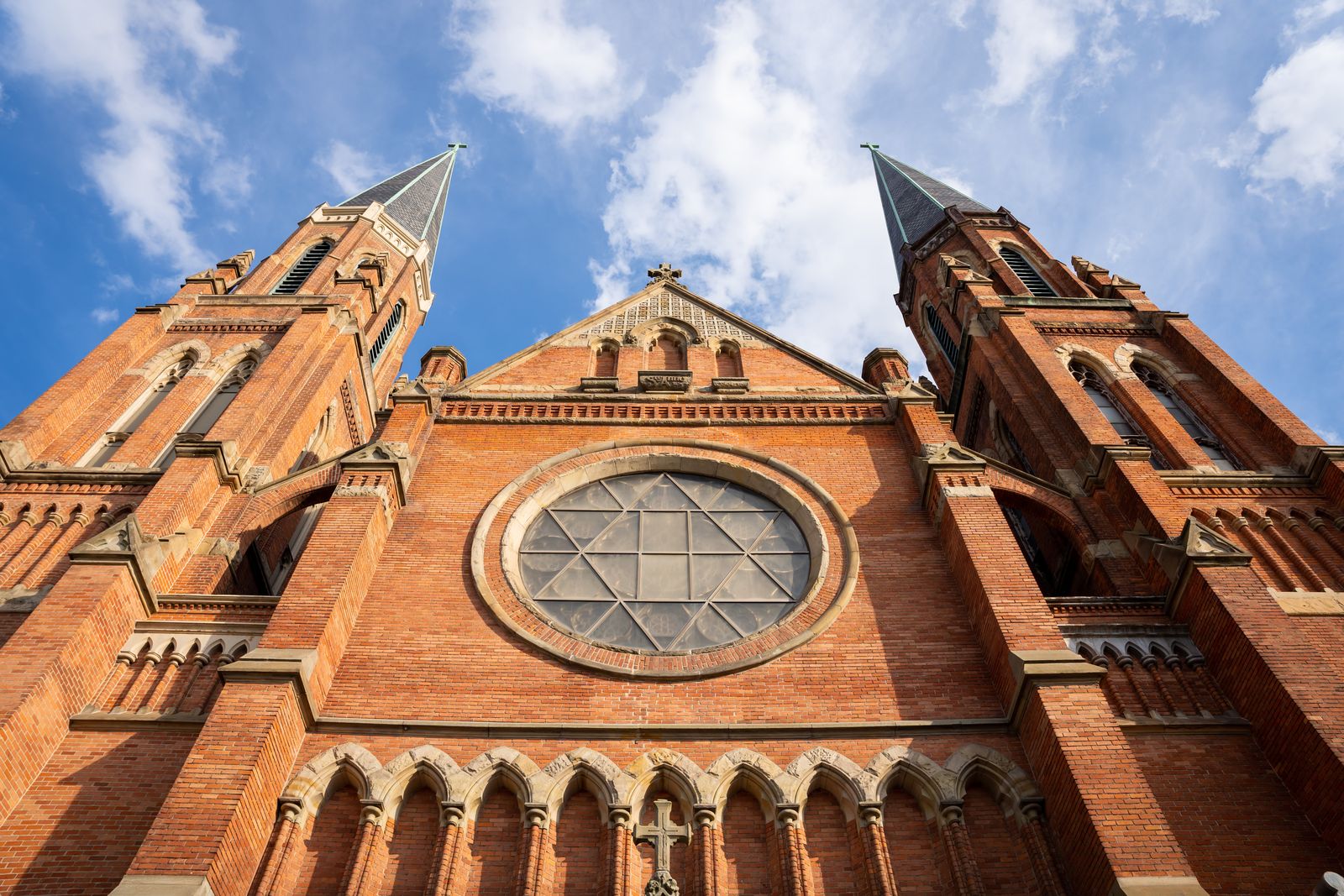
In a sign that the work of the Church in the Archdiocese of Detroit is in communion with the universal Church, Pope Francis raised the status of the National Shrine of the Little Flower in Royal Oak and Ste. Anne Parish in Detroit to minor basilicas in 2015 and 2020, respectively.
Msgr. Charles Kosanke, rector of the Basilica of Ste. Anne, said the historic church's elevation as the original and founding parish of the city of Detroit is symbolic of the cornerstone of faith Archbishop Vigneron will leave for the Archdiocese of Detroit.
“When Archbishop Vigneron asked me to come to Ste. Anne’s in April 2016, he had this vision for Ste. Anne’s to become an apostolic center for the city,” Msgr. Kosanke said. “His vision was for this church — the founding church of the Archdiocese of Detroit and really the state of Michigan — to be a true apostolic center, a beacon of hope in the city and a sign of the rich history of our church and that we have a bright future.”
Copy Permalink
Unleash the Gospel Bishops Archdiocese of Detroit Episcopal transition




